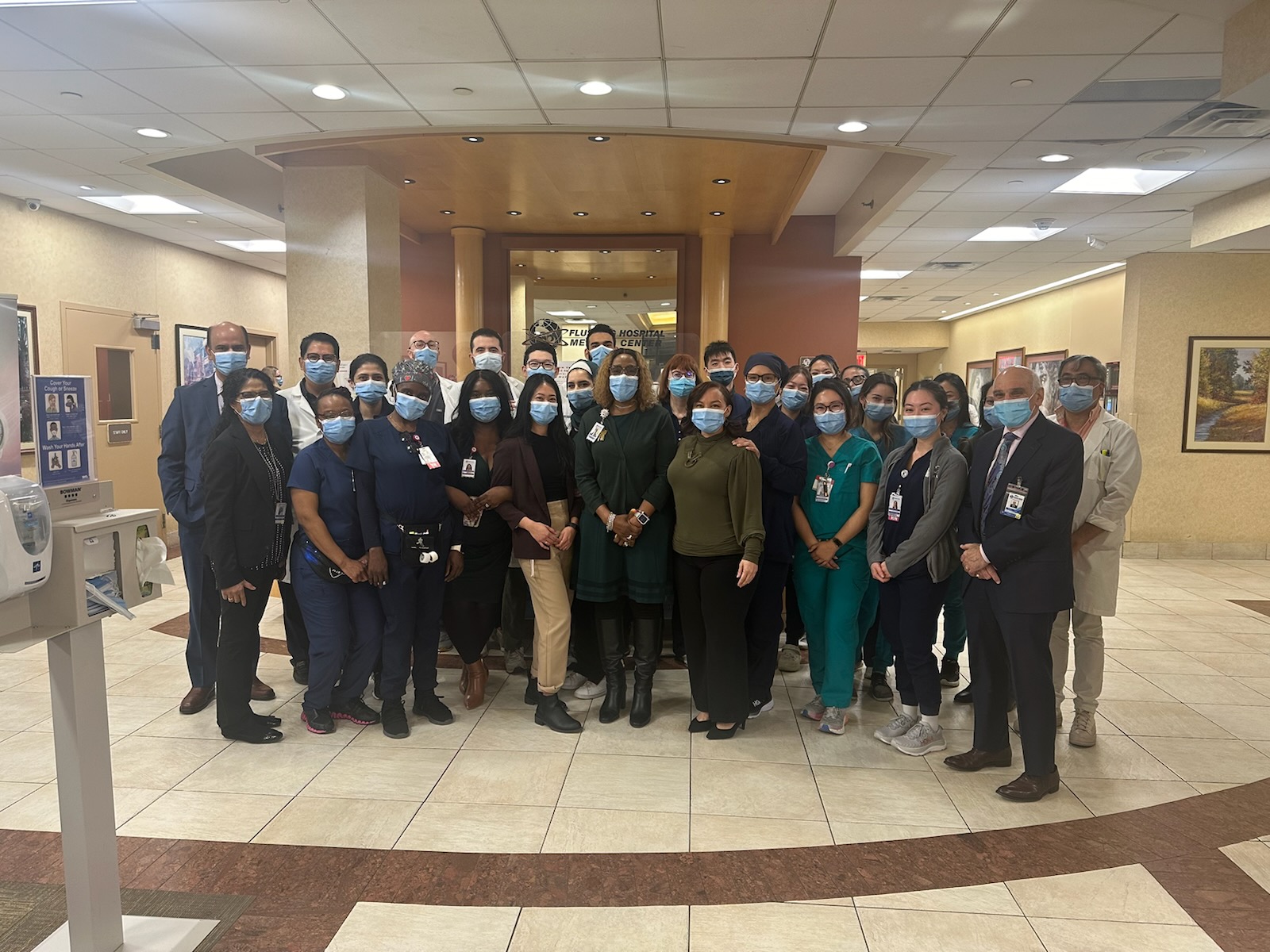 Flushing Hospital Medical Center recently celebrated 365 Days CAUTI free, an achievement that reflects the hospital’s commitment to patient safety and reducing the risk of hospital-acquired infections.
Flushing Hospital Medical Center recently celebrated 365 Days CAUTI free, an achievement that reflects the hospital’s commitment to patient safety and reducing the risk of hospital-acquired infections.
A CAUTI or catheter-associated urinary tract infection occurs when germs (usually bacteria) enter the urinary tract through the urinary catheter and cause infection in the bladder or kidneys. CAUTIs have been associated with increased morbidity, mortality, healthcare costs, and length of stay.
A urinary tract infection (UTI) is the most common type of healthcare-associated infection, Among UTIs acquired in the hospital, approximately 75% are associated with a urinary catheter. Between 15-25% of hospitalized patients receive a urinary catheter during their hospital stay. The most important risk factor for developing a catheter-associated UTI (CAUTI) is prolonged use of the urinary catheter.
Flushing Hospital has implemented an interdisciplinary evidence-based CAUTI prevention program including:
- Appropriate indwelling urinary catheter use by establishing guidelines for insertion/continuation and implementation of external urinary collection devices.
- Proper catheter insertion and maintenance bundles of care provided by nurses trained through simulated return demonstration.
- Prompt catheter removal includes a nurse-driven protocol that allows the bedside nurse to practice autonomously to remove urinary catheters based on approved guidelines.
- Standardized bladder scanning and straight catheterization protocols to prevent insertion of indwelling urinary catheters.
- Daily surveillance rounds by the Infection Preventionists to monitor adherence to bundles of care and provision of just-in-time training to the care team.
- In 2023, Infection Preventionist and Physician champion rounds were implemented to provide additional interdisciplinary collaboration and promote the removal of urinary catheters.
Achieving one year without a CAUTI is a remarkable accomplishment and speaks volumes about the effectiveness of our CAUTI prevention efforts. The success of these rounds, led by the Infection Preventionists and the Physician Champion, with the support of nurses, residents, and other healthcare team members, underscores the power of collaboration and evidence-based practices in improving patient outcomes.
We would like to especially acknowledge the following for their hard work in eliminating CAUTIs for the last year: Nursing Department, Residents, Physician champion; Dr. Akbar Khan, Infection Prevention & Control Department, Infectious Disease Physicians, Quality Department, and the Network Invasive Line Task Force.
